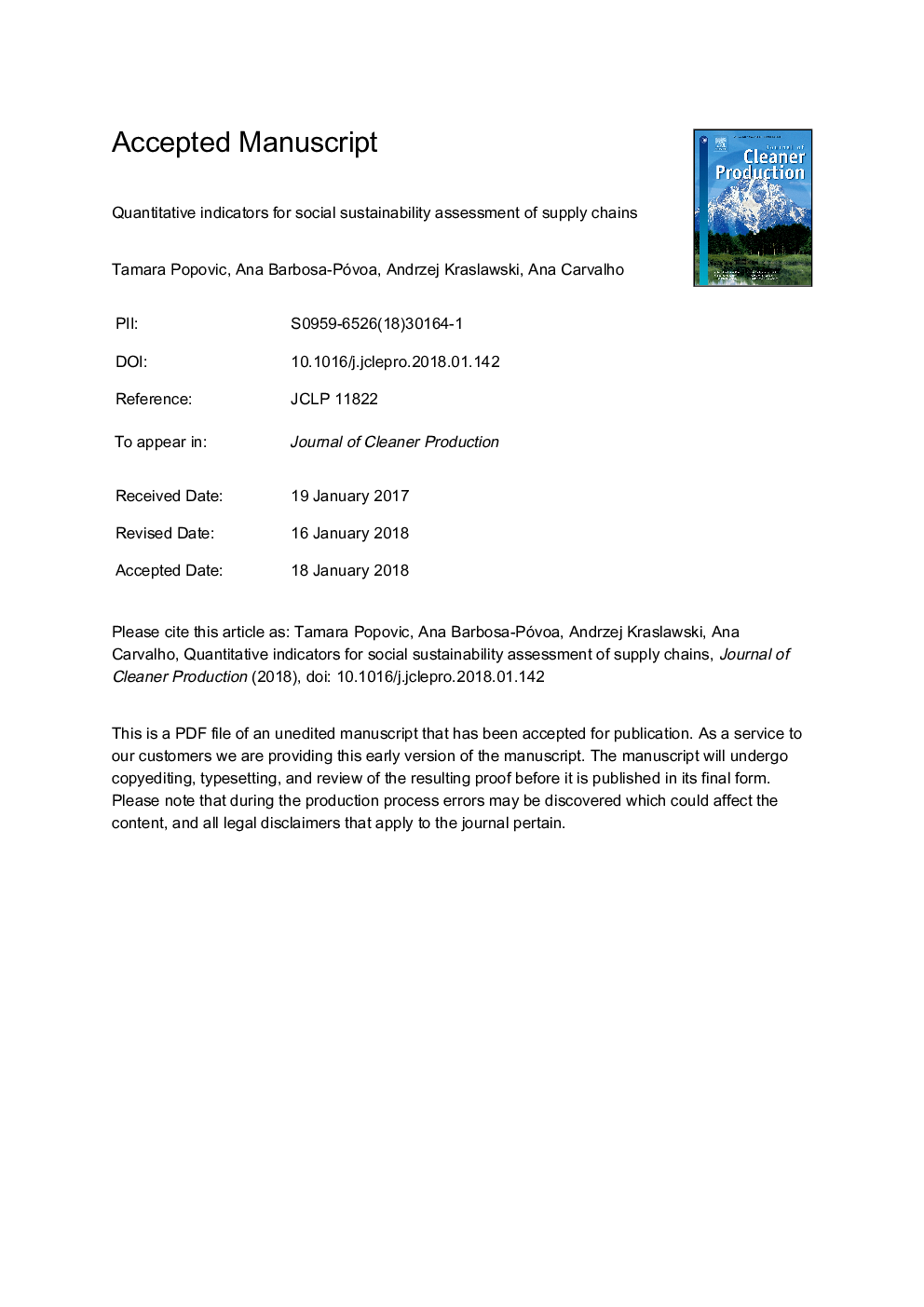| Article ID | Journal | Published Year | Pages | File Type |
|---|---|---|---|---|
| 8098079 | Journal of Cleaner Production | 2018 | 51 Pages |
Abstract
Despite the increased interest in social sustainability there is still lack of information for the social assessment, as well as a lack of appropriate quantitative social sustainability indicators to perform such assessment. In this paper, there is proposed a set of 31 quantitative social sustainability indicators enabling the evaluation of the whole supply chain. In particular, the issues related to labor practices and decent work, as well as human rights are analyzed. The indicators are developed based on literature review and validated by a content analysis of 141 sustainability reports, which cover all echelons (upstream, midstream, downstream) of supply chains. By considering differences that exist within different echelons of the supply chain, one-way statistical analysis (ANOVA) is performed in order to decide whether echelons affect the relevance of the indicators. Finally, using data available in sustainability reports the applicability of indicators is tested. Results of the content analysis showed that issues covered by all 31 indicators are addressed implicitly by companies in their sustainability reports, while ANOVA analysis showed that the type of echelon does not impact the relevance of the indicators, being this set of indicators a generic approach to holistic assessment of the supply chain. Further, it was verified how these indicators can be used for the assessment of the whole supply chain. Thus, the proposed indicators can be used for both performance assessment, as well as for periodical monitoring of the supply chains; they can also be an important tool in policy making.
Related Topics
Physical Sciences and Engineering
Energy
Renewable Energy, Sustainability and the Environment
Authors
Tamara Popovic, Ana Barbosa-Póvoa, Andrzej Kraslawski, Ana Carvalho,
